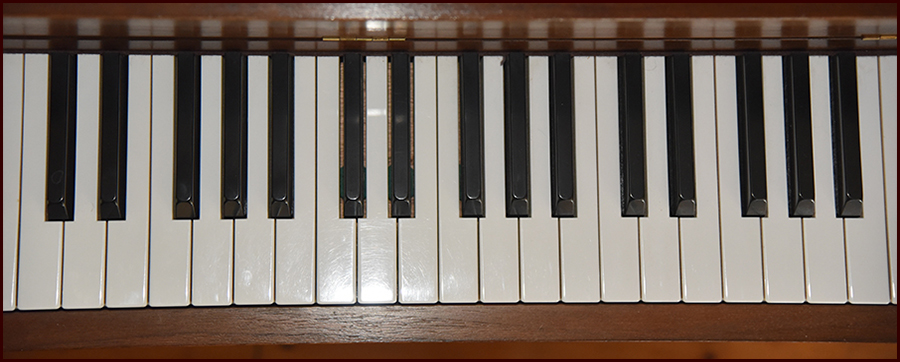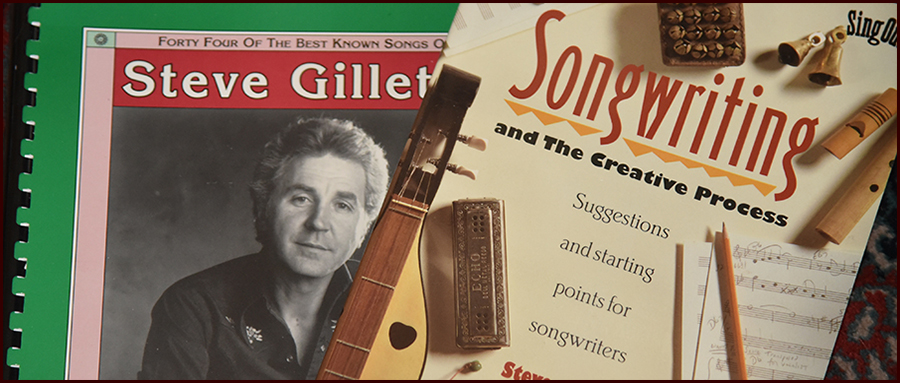How to Write a Song: Getting Started
In my book Songwriting and the Creative Process, I presented many of the basic ideas of getting started with songwriting. I think it's a helpful survey, but in recent years, my approach to teaching songwriting has been to work with songs that are already pretty fully formed and to offer suggestions as to how the song could be more effective.
With a circle of songwriters in a typical workshop session, we will listen to eight or ten writers present their songs. After each song I'll open the discussion with a few suggestions and then there will be a time for all the participants to make observations or suggestions as well. Usually similar issues will come up over the course of a few hours together.
I have felt that this is a much better use of the time than if I was lecturing or demonstrating with my own songs or familiar songs from the charts. My belief is that by putting forth one's own work and receiving responses from others in the group, the lessons are more memorable, even if occasionally a little painful. But really, in our experience, members of these circles have been very respectful and supportive of each other's efforts.
But this presumes that the songs have already undergone substantial work in getting to the form that can be shared and critiqued. I welcome having a little feedback before I commit to a final version of a song. Actually, I have revised songs years after I've begun to perform them, and have even changed some songs long after they were recorded, which can be awkward. This process can go on indefinitely.
William Butler Yeats revised some of his poems even after many decades, and some publishers print both versions. I think it's a helpful lesson to see what changes he thought were improvements to poems like "The Song of the Wandering Angus,” “The Sorrow of Love” and “The Lamentation of the Old Pensioner.”
I came across this statement in the preface to the collection of Yeats' early work called Poems published in London in 1895. He wrote: “This book contains all the writer cares to preserve out of his previous volumes of verse. He has revised, and to a large extent re-written, “The Wanderings of Usheen” and the lyrics and ballads from the same volume, and expanded and, he hopes, strengthened “The Countess Cathleen.” He has, however, been compelled to leave unchanged many lines he would gladly have rewritten, because his present skill is not great enough to separate them from thoughts and expressions which seem to him worth preserving.”
So revising and rewriting are important. You may say, as I have said many times, that good writing is good rewriting. I assume that suggestions are welcome in the circle even if I don't have the expectation that they will be followed or that any changes will be made. And I often say, “You don't have to change a thing for us, just be aware that this is what we have heard and apply that as you will, or think about it with future songs.
“And also be aware that this is just one of many chances you will have to learn about how your song is heard, even though it's a pretty ideal and encouraging atmosphere in which to receive criticism.” With our workshops at Big Sur and Santa Cruz, at the Kerrville Folk Festival and more recently in Bennington, Vermont, we've been able to work with talented songwriters and be a part of a process and a dialog that has improved the craft for all of us.
One writer, Michael Greenleaf, has been with our group for most of those years, and is a gifted songwriter and performer. Our friend Valerie Magee captured footage of Michael sharing a song with the group and some of our commentary. It's a glimpse of the atmosphere of these gatherings, if only a brief glimpse. It begins with the last verse and chorus of Michael's song.
In listening and commenting, it's our hope not so much to change what's there, but to use the song to bring up issues that all of us will encounter. It's a way of building our own editing skills while we hear how others have solved similar problems.
Here's the video from the workshop:
Clip of Michael Greenleaf sharing his song at a Bennington VT workshop.
Video by Valerie Magee.
And here's a link to Michael's song "Shadow" in its complete form, found on his CD Miracle Rose.
Here's a video with footage that Tim McMullen took of an earlier session of our Big Sur Songwriter's group after we had moved the gatherings to our new home in Santa Cruz. Oak Reinier from Guerneville, California presents a song in progress and we hear some of the other writers weighing in with ideas and critique.
Oak Reinier performs a song at a "Big Sur" Songwriter's Workshop.
Video by Tim McMullen.
Even as accomplished writers we all need to be reminded of basic principles from time to time. Each of us has some sort of checklist that we employ, and certain qualities that we want our songs to have. Still, it's always helpful to refresh our grasp of the fundamentals and get back to square one.
But where do you turn for instruction in the most basic approach to songwriting? I'm glad you asked. It turns out that the Internet offers lots of great resources. Each of these people has a plan for beginning; helpful suggestions to keep you on course and avoid the befuddlement that has waylaid a perfectly workable song idea before it has a chance to come into its own.
It's fun to compare the different approaches, lots of the same language and not much conflict, still, always more to learn. I'm sure that spending a little time with each, and maybe a little money as well, will be rewarding and inspiring. Build that library to consult when you are between inspirations.
Robin Frederick is a former Director of A&R and Production for Rhino Records and Executive Producer of over 60 albums. She has written and produced more than 500 songs for television and records as well as music for the Photon Laser Tag game and scripts for the talking doll Cricket. She has an excellent series of articles, videos and books. Years ago Robin and I both wrote songs for the Disney Channel productions of Welcome to Pooh Corner and Dumbo's Circus. Here's her very helpful site, rich with videos and tips on how to get started and how to evaluate successful songs: Robin Frederick: Learn How to Write a Song.
Steve Seskin has a very impressive list of hit records. In recent years he has run the songwriting school at the Kerrville Folk Festival and has called on me to help out with critique session at times. Here's a page on his workshops and his approach to teaching: Steve Seskin's course descriptions.
Also an old friend is Harriet Schock, who teaches in West Los Angeles. She conducts group sessions around her dining room table and by individual appointment. She also does critique sessions by mail, and I'm sure by now via Skype or Zoom. She has coached an impressive list of songwriters including another old friend, Tracy Newman. There's a video of Harriet and some of her students talking about her approach here: Harriet Schock's School of Songwriting.
Pat Pattison is a professor at Berklee College of Music, where he teaches lyric writing and poetry. He is the author of four books: Songwriting Without Boundaries, Writing Better Lyrics, The Essential Guide to Lyric Form and Structure, and The Essential Guide to Rhyming. Pat has developed five online courses for the Berklee School of Music: three on lyric writing, one on poetry, and one on creative writing, all available through the Berklee website. Here's a talk where he shares his theories on structure, rhyme and phrasing: Pat Pattison talk @ YouTube.
Another old friend, Paul Reisler, focuses on songwriting with kids. Paul, a songwriter, composer, teacher and founder of the group Trapezoid, began the Kid Pan Alley program during an elementary school songwriting residency in rural Rappahannock County, VA. There, he co-wrote over 50 songs with all 600 children in the county. These programs have been very successful and have led to recordings of these collaborative songs by some established artists.
Jason Blume has been phenomenally successful as a songwriter, but has also been very active as a teacher doing seminars, webinars and songwriting critique sessions internationally. Here in an article for American Songwriter magazine, "Jason Blume: Offers Steps to Success," he explains his six step approach to writing a good song. Here's an interview where he tells of his own path to success: Jason Blume video @ YouTube.
Here is a link to a page from the USA Songwriting Competition website with mention of a dozen or more excellent resources, including books by Sheila Davis, Paul Zollo, Molly Ann Leiken, Jim Webb, and John Braheny. Some are friends; all are well thought of as writers and teachers. These are all books I feel good about recommending: Songwriting books.
And here's a very refreshing video from Marco Cerillo; no words, just ten minutes of nice sounding guitar chords, some very familiar and some new and inspiring. A new chord or new progression can be the start of a new song. This video would probably make a good warm-up before beginning a writing session: Guitar chords video.


